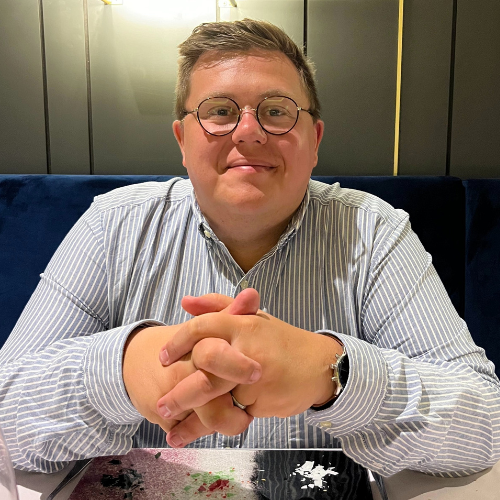Three charity partners are involved in the innovative project.
Publicly funded research into important health issues like cancer and dementia has long been inaccessible to people with learning disabilities, but academics at the University of Glasgow are changing that.
The Research for Everyone project brings together people with learning disabilities and scientists studying the links between football and dementia, and the impact of cancer on mental health.
Together they have co-created animations, podcasts and infographics to explain the two studies, demonstrating that even the most complex research findings can be made available to everyone.
Natalie, who was one of 6 self-advocate co-creators who produced the resources, believes making health research easier to understand is important.
She said: “We have the right to understand health information like everybody else, we just have to go about it in a different way. I find it a lot easier to understand and interact with the colours and images used in the animations and infographics, than with the written word, which look like homework. I think more people will connect with these outputs, not just people with different disabilities but also others including children and young people. Less writing, more images is the way to go.”
Promoting a More Inclusive Scotland (PAMIS) is one of three charity partners involved in this innovative project.
Jenny Miller, chief Executive said: “The only way we can learn from research and ensure that lives are better for the people we support is if we make the findings accessible and meaningful.
“Too much money is spent on research that could change lives but because it is inaccessible to so many of us it isn’t used.
“The Research for Everyone approach is how all research should be shared so we can all take advantage and support the difference that it can make to health and wellbeing, especially of people with a learning disability who continue to face many health inequalities.”
Professor Deborah Cairns at the Scottish Learning Disabilities Observatory at the University of Glasgow, who conceived this project, said: “Important health information is often written in a way that is too difficult to understand. We think that everyone has the right to meaningful health information.
“We worked together to identify clearer ways to describe the purpose, outcomes and recommendations from two important studies carried out here at the University of Glasgow. Our project brings a fresh perspective and challenges the typical academic way of communicating research findings.
“We chose animations, infographics and podcasts to engage as wide an audience as possible. Some people find it easier to look at images, while others prefer to read or listen. We also created a British Sign Language version of the animations.”
This is a new approach for the University, and one that Professor Cairns hopes will be adopted across the academic community, encouraging a more inclusive research culture.
She added: “In recent years, we have been asked to make our health research easier to understand for as many people as possible. We hope that this project, guided by people with learning disabilities, lays the foundations for encouraging a more inclusive research culture where clearer and easier to understand health information is available for anyone keen to know more about research.”








If you're interested in this work, please visit https://bit.ly/Research4Every1 to find out more, watch, read and listen to the new outputs! You can also give your feedback via this short survey https://bit.ly/3EZ9Zjd